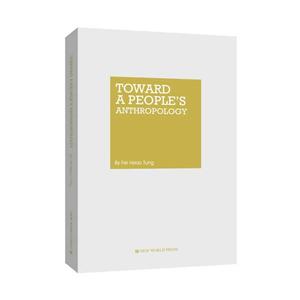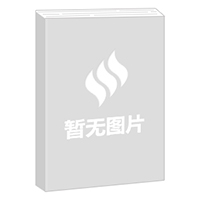-
>
妙相梵容
-
>
基立爾蒙文:蒙文
-
>
我的石頭記
-
>
心靈元氣社
-
>
女性生存戰爭
-
>
縣中的孩子 中國縣域教育生態
-
>
(精)人類的明天(八品)
走向人民的人類學(英文版) 版權信息
- ISBN:9787510465871
- 條形碼:9787510465871 ; 978-7-5104-6587-1
- 裝幀:簡裝本
- 冊數:暫無
- 重量:暫無
- 所屬分類:>
走向人民的人類學(英文版) 本書特色
本書為費孝通先生在20世紀80年代初用英文發表的人類學文章的結集。作為國際人類學界的一位具有重要影響力的學者,費孝通先生與其前輩的人類學者相比,他不再像西方學者那樣主要研究被殖民地地區的民族和文化,他的研究對象是本國的人民和文化。與前者與被研究對象是隔膜的關系不同,費先生從事人類學研究的目的在于改善人民的生活,人類學學者不再是本土文化資源的掠奪者,而是為被研究對象服務的。他非常具有洞見地提出,建立一門為人民服務的人類學。本書發表的時間正是中國剛剛走出浩劫,社會經濟發生深刻變革的時期,也是中國社會人類學重建的重要時期,因此本書具有很高的學術價值和社會價值。
走向人民的人類學(英文版) 內容簡介
費孝通先生人類學研究的總結之作,展現一位以為人民服務為己任的*人類學家的情懷
走向人民的人類學(英文版) 目錄
TOWARD A PEOPLE’S ANTHROPOLOGY 1
CHINA’S
NATIONAL MINORITIES — AN INTRODUCTORY SURVEY 25
ON THE SOCIAL TRANSFORMATION OF CHINA’S NATIONAL MINORITIES 46
ETHNIC IDENTIFICATION IN CHINA 78
MODERNIZATION AND NATIONAL MINORITIES
IN CHINA 102
REVISITING THE MOUNTAINS OF THE YAO
PEOPLE 121
APPENDICES 145
Life in Minority Areas (pictorial
) 146
NATIONAL MINORITIES AND THEIR
DISTRIBUTION 171
INDEX 176
走向人民的人類學(英文版) 節選
PREFACE
This is a collection of articles in English I have had published in the last two years. These were years marking the beginning of another period in my life. The articles may be read as signs of this new beginning.
It is fifty years since I took up the study of Chinese society. In the summer of 1930, when I was twenty, I decided to switch from medicine to social science. I left Dongwu (Soochow)
University for yenching University in Peiping. My reasoning was that as a medical doctor I might cure the afflictions of a few, but not those of hundreds of millions engendered by an irrational society. What ailed society must be cured first. Whether this decision was a wise one is hard to say. Anyway, I never became a doctor of medicine. How much have I learned about society, that too is hard to say. However, I have never had second thoughts about that decision and I shall continue on this road as I have done for the past fifty years.
The road I have traversed has not been smooth. Leaving aside personal experiences, the changes society has undergone are in all probability unprecedented. As a student of society and living in the midst of such huge changes one should be the first to see this as an extraordinarily rare opportunity. Is not one’s understanding of human society greatly enriched observing vast and kaleidoscopic changes that could never have occurred in a stable society? In such a society one cannot help being a participant in the social changes as well as being changed oneself.
Certainly such real experiences, physically and emotionally experienced, would be paid for with tears and blood. But they are just the things for a student of society. At the same time, one must ask oneself, in this huge and tempestuous tide of history how much can one decide for oneself? Light and darkness, life and death, forever changing, swift and unexpected. How could research keep its even tenor? All one could do was try to keep calm and persevere.
Often it was not the life of a scholar but a scholar of life. In the summer of 1938, a few days before I left London by ship for home, Chamberlain returned to England from Munich.
At an Indian port I read about the fall of Guangzhou (Canton) into the Japanese hands, so I had to disembark at Saigon and make my way to Kunming in the southwest province of yunnan.
There I began an unsettled life. All hopes vanished of going home to my native place to gather more facts to fill out my Peasant Life in China, which was to be published in England.
The village I had made a study of was then occupied by the Japanese invaders. In order to pursue my work of studying Chinese society, I had to do it in the villages of yunnan Province.
Actually I did write up some reports of such studies in a remote temple, some of which were translated and incorporated into my Earthbound China in 1943-44 when I visited the United States for the first time.
The following year I returned to Kunming. Political corruption was rampant and the people lived in abject poverty. It was chillingly depressive. I could not sit still, I became more convinced that sociology must be integrated with the social realities of the place and the time and must become a force promoting social advancement. Before this, I had been able to concentrate on studies and investigations, but objective realities and subjective conditions had now changed.
It was no longer possible to carry on studies of the rural areas. Moreover, my attention had now become more and more fixed on practical social and political issues. From then for about five years, until the establishment of the People’s Republic of China, I spoke out and wrote about the things which upset and angered me. During this period I wrote many articles. It was perhaps the most prolific period in my life.
My image abroad then was as Professor R. Redfield had written in his preface to my China’s Gentry, A man who has written widely, talked much, and acted fearlessly toward the solution of the immense social problems of China.
The situation after the country?ˉs liberation has had both a positive and negative influence on my academic work. On the positive side: In order to bring about the equality of all nationalities within the country, China embarked on a grand research project to study ethnic questions and, as one who had studied social anthropology, I was included in this undertaking. This settled for me the thrust of my work for this period. In 1950 I began to join the fieldwork group organized by the Central People?ˉs Government and for two years we visited and interviewed national minorities in Guizhou (Kweichow) and Guangxi (Kwangsi). I spent another half year in helping to identify nationalities in Guizhou. In 1956 I was again in charge of supervising the task of studying the social development of the national minorities of China organized by the Standing Committee of the National People’s Congress. My duties came to an end in the autumn of 1957. The materials used in the articles included in this collection came for the most part from studies carried out during this period of seven years.
Apart from the positive side, there was also the negative side. In the third year following the country’s liberation, in the midst of the process of reforms, the legitimacy of sociology as an academic discipline in China was denied and all departments of sociology and sociological studies in colleges were suspended from the summer of 1952. In 1957 when some friends proposed rehabilitating sociology in China I said a few words in concurrence.
At that time, the country was in the middle of an exaggerated struggle against Rightists and many veterans in Chinese sociological circles were wrongly branded as bourgeois Rightists. I was not excluded. About this event in my life the American anthropologist J.P. McGough edited the book Fei Hsiaotung, the Dilemma of a Chinese Intellectual (M.E. Sharpe, 1979). This book can be taken as a record of the start of another period of vicissitude in my life.
My life in the years from 1957 to 1979, including the 10 years of the so-called cultural revolution was inevitably very abnormal. I could no longer carry on social studies as an academician, but what I went through gave me the most vivid and original material for an understanding and insight into society and life. I only blamed myself for my low theoretical grasp which prevented me from fully appreciating and understanding the abundantly rich events in the life of those years. But despite the perils and trials I continued to write whenever the opportunity offered and if that were impossible I edited and translated.
During those years, some colleagues and I managed to gather and collate several volumes of historical and geographical material about the nationalities in the western border region and also translated two fairly large volumes of world history.
Then another tremendous change occurred and order appeared out of chaos. The state of instability finally ended. After the calamitous decade, I was assigned in 1978 to re-establish sociological studies in the Academy of Social Sciences. It was officially acknowledged that it had been a mistake to deny the legitimacy of sociology in China. The black clouds passed. The sun shone again. Although I am old and my days are numbered and nearing the end of my race, there is still something left for one final effort. From the winter of 1978 to the autumn of 1980, I have been abroad four times. There are three articles in this collection which are based on talks I gave during those visits.
With vast oceans and thick man-made fog between us, to many abroad I had become a mystery. They did not know whether I had died or still lived. Some very good and affectionate friends had even placed our correspondence in research archives. Then after 30 years, I suddenly reappeared among them. Of course they were both startled and happy. Maybe that as why colleagues abroad have lavished on me so much care and concern. The honors they have bestowed on me are more than I deserve. This makes me very uneasy. What one has done in one’s life should be appraised by those coming after. What is right and what is wrong can be settled by the public. But one is only too well aware of one’s inadequacies in the field of scholarship.
……
走向人民的人類學(英文版) 作者簡介
費孝通,享有國際盛譽的社會人類學家和社會活動家,中國社會學和人類學的奠基人之一。其著作《江村經濟》被著名英國人類學家馬林諾夫斯基稱為人類學發展史上的里程碑,也是中國人類學的奠基之作。他的主要研究方法是類型比較法和社區研究法,他主張人類學應當是科學的、對人民有用的社會調查研究必須符合廣大人民的利益,也就是說真正的應用人類學必須是為廣大人民利益服務的人類學,并終生為這一目標而努力。
- >
中國人在烏蘇里邊疆區:歷史與人類學概述
- >
伯納黛特,你要去哪(2021新版)
- >
羅曼·羅蘭讀書隨筆-精裝
- >
【精裝繪本】畫給孩子的中國神話
- >
莉莉和章魚
- >
新文學天穹兩巨星--魯迅與胡適/紅燭學術叢書(紅燭學術叢書)
- >
苦雨齋序跋文-周作人自編集
- >
有舍有得是人生
















